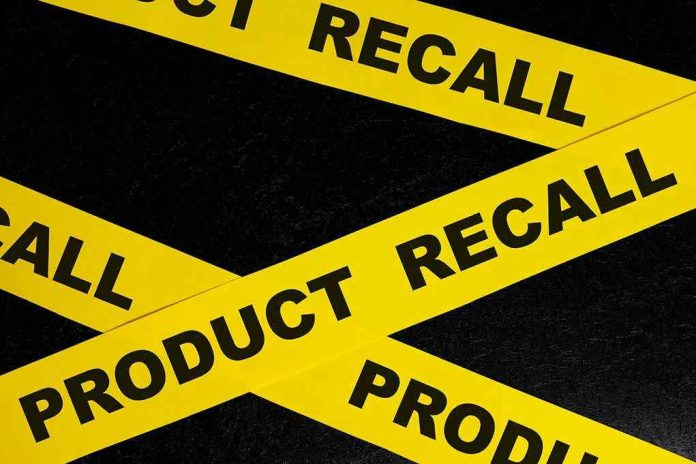
Over 67,000 cases of Power Stick deodorant have been yanked from shelves due to mysterious manufacturing issues, leaving consumers in the dark about potential risks.
At a Glance
- A.P. Deauville recalls over 67,000 cases of Power Stick deodorant due to cGMP deviations.
- Recall impacts products sold at Walmart, Dollar Tree, and Amazon.
- The specific manufacturing issue remains undisclosed, raising concerns among consumers.
- The FDA oversees the recall, ensuring compliance with safety standards.
Manufacturing Missteps: A Risk to Consumer Trust
More than 67,000 cases of Power Stick deodorant have been recalled nationwide after the FDA identified deviations from Current Good Manufacturing Practices (cGMP). A.P. Deauville, the Pennsylvania-based manufacturer, initiated the voluntary recall on July 10, 2025. The recall affects three specific varieties, each widely distributed through major retailers like Walmart, Dollar Tree, and Amazon. The breadth of this recall and the silence surrounding the specific manufacturing problem have raised eyebrows among consumers and industry watchers alike.
This recall is not just a minor hiccup in the production line; it’s a significant event affecting a large swath of the consumer base. While recalls due to cGMP deviations are not unheard of, the scale here is unprecedented for Power Stick. The lack of transparency regarding the exact nature of these deviations leaves room for speculation and concern. Is this a case of mislabeling, contamination, or something else entirely? Without clear answers, consumers are left to wonder about the safety of other personal care products they trust.
Regulatory Oversight and Retailer Responsibility
The FDA’s role in this recall is crucial. As the regulatory authority, the FDA ensures that products on the market are safe for consumers. Their involvement in overseeing this recall highlights the severity of the issue at hand. A voluntary recall suggests that A.P. Deauville is cooperating fully, but it also underscores the potential consequences if these deviations had gone unchecked. Retailers, meanwhile, are tasked with the challenge of pulling affected products from their shelves, a logistical nightmare that could result in significant financial losses.
Consumers have been advised to stop using the recalled products immediately and contact A.P. Deauville for further instructions. This recall is not just a matter of corporate compliance; it’s a call to action for consumers who rely on these products daily. The broader implications for the personal care industry are significant, with other manufacturers now likely reviewing their own compliance with cGMP standards to avoid a similar fate.
Broader Implications for the Personal Care Industry
The long-term impact of this recall could be substantial. For A.P. Deauville, the immediate financial hit from returns and lost sales may be just the beginning. Reputational damage is a real risk, particularly when consumer trust is already fragile in many sectors. The personal care industry might see increased scrutiny from regulators, prompting a wave of changes in manufacturing processes to ensure compliance with FDA standards. This could lead to higher costs for manufacturers, which, unsurprisingly, might be passed along to the consumer.
On a broader scale, this recall could set a precedent for how similar situations are handled in the future. Retailers may implement stricter quality assurance protocols, and consumers may become more discerning about the products they choose to trust. The economic, social, and political ramifications are intertwined, affecting not just the companies involved but the entire ecosystem of the personal care industry. This event serves as a stark reminder of the delicate balance between maintaining quality standards and meeting consumer demands.





